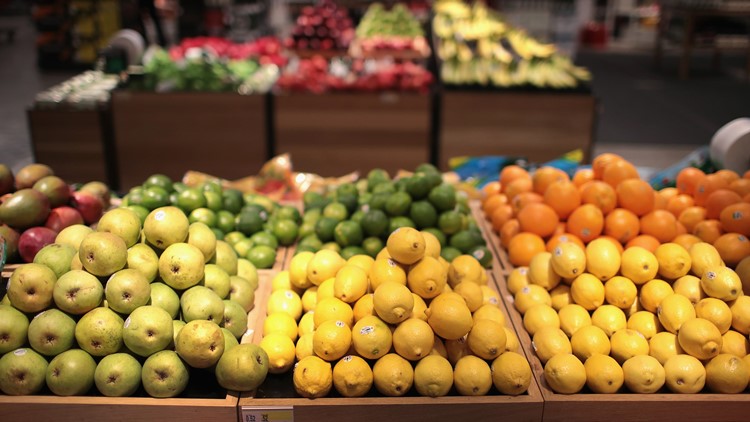You go to the supermarket, determined to lose weight and eat more healthful food. And those fruits and veggies look mighty tempting, piled high and colorfully, so you load up your cart.
But then real life sets in, you get too busy (or are too lazy) to prep them and you go to the drive-through. And much of your purchase stays in your fridge until you throw it out.
Yes, Americans waste an astounding 150,000 tons of food each day — about one pound per person — and it turns out that the biggest culprits are healthy eaters.
That’s according to research released Tuesday by the USDA, the University of Vermont and the University of New Hampshire. The research also reveals that the wasted food uses about 30 million acres of land — about 7% of the American agricultural area — as well as 4.2 trillion gallons of irrigation water, 1.8 billion pounds of nitrogen-based fertilizer and 780 million pounds of pesticides.
Data on food intake, food waste, and agricultural practices in producing certain types of foods were collected from various government sources, the report said. Meanwhile, diet quality was assessed using the 2015 Healthy Eating Index, which is produced by the USDA’s Center for Nutrition Policy and Promotion.
The study, published in the journal PLOS ONE, highlighted Americans’ casual attitude to the waste of food, which is among the worst in the world, as well as attempts by some consumers to improve their diets.
"Higher quality diets have greater amounts of fruits and vegetables, which are being wasted in greater quantities than other food," said Meredith Niles, a co-author of the study from the University of Vermont, in a statement. "Eating healthy is important, and brings many benefits, but as we pursue these diets, we must think much more consciously about food waste."
The report pointed to consumption of fruits and vegetables, which, it said, “require substantial amounts of agricultural inputs.”
The authors, led by Zach Conrad of the U.S. Department of Agriculture's Grand Forks Human Nutrition Research Center in North Dakota, urged increased efforts to improve diet quality at the same time as reducing food waste. “Increasing consumers’ knowledge about how to prepare and store fruits and vegetables will be one of the practical solutions,” the report added.



